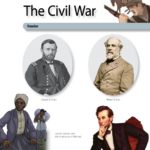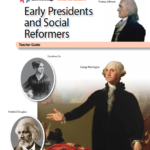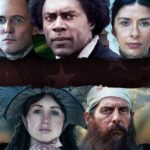This unit explores the political, historical and cultural causes and consequences before, during and after the Civil War, one of our nation’s greatest crises. Across 24 lessons, students engage with the material through primary sources and consider the influence of abolitionists and other intellectual as well as military and political figures.
This unit includes 24 lessons that are about 45 minutes each.


